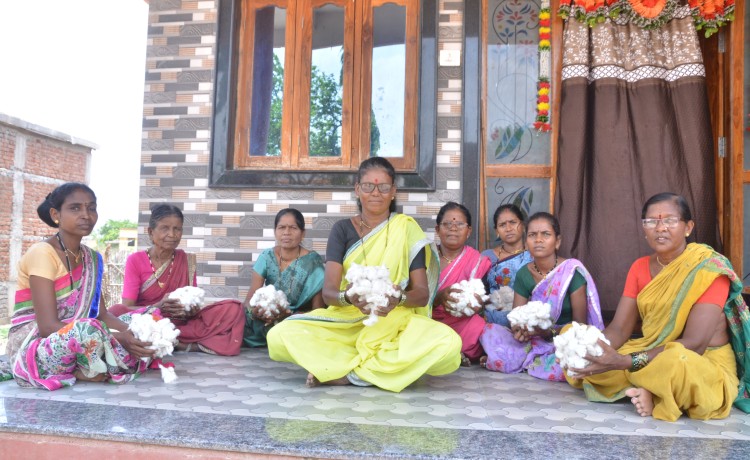In the heart of Chandrapur’s Rajura block lies Devada, a quiet farming village where cotton reigns supreme. With 264 of its 298 households cultivating over 2200 acres, agriculture is more than a livelihood—it’s a way of life. But it was defined by outdated practices, limited tools and little access to credit.
Read more

In Banli village of Chandi gram panchayat, Himachal Pradesh, access to water was a daily struggle. For decades, women carried water from a traditional bouri—a small natural well that collects rainwater and is used for irrigation or drinking.
Read more
India is home to the fourth-largest agricultural sector in the world and a crucial part of the country’s economy. As agranian labour, women’s participation has always been significant, with estimates ranging from 63% to 80%.
Read more
About a year ago, Ambuja Foundation decided to stop using the word “housewife” and adopted “homemaker” instead. Because language matters. And in the arena of women empowerment, it matters more than we perhaps realise. A simple change of word can take us across a threshold toward a new future. A woman is not limited to a house and its boundaries. She’s the maker of a home, a mainstay of her family, and a person in her own right.
Read more
A movement is underway across India, to empower women to become ‘lakhpati didis!’ Ambuja Foundation is playing its part – encouraging rural women to strive for a Rs. 1 lakh income and fostering micro enterprises along the way.
Read more
An event organized by Ambuja Foundation and Apparel Made-Ups & Home Furnishing Sector Skill Council organized an event in August for the women of Virasat to foster continuous improvement and excellence in the workplace.
Read more
A grassroots movement is underway in Punjab! Women from the districts of Bathinda, Kotbhai and Rajpura are honing their skills, reviving traditional handicrafts and becoming breadwinners in their families – all via the Virasat- E-Malwa collective. And one of the driving forces behind it, is Karamjeet Kaur.
Read more
In India, women-led nano enterprises are quietly reshaping the business landscape. Despite facing challenges like limited resources and navigating a dynamic market, these ventures, primarily run from homes, are thriving, with the majority operating outside the traditional brick-and-mortar model. Efforts to promote self-employment among women, particularly through home-based businesses, have intensified, with government and private initiatives offering schemes for credit, training, and incubation programs tailored to women, leading to an increase in nano enterprises.
Read more
Unpaid care and domestic work is highlighted by the United Nations as one of the many hindrances to women’s right and ability to access decent and productive work. Did you know that in India, women spend up to 352 minutes per day on unpaid domestic work – 577% more than men who spend approximately 52 minutes. This means that 3 out of every 4 Indian women are not working outside the home and many have aspirations to do so!
Read more
Villagers of Arjuni live nestled on the fringes of the Barnawapara forest and are primarily Adivasi tribals – relying on the gifts of the forest for their livelihoods. Here, the primary source of income is found in weaving traditional bamboo products – baskets, brooms, fans and other household utility and decorative items.
Read more
In rural India, where people are dependent on groundwater or weekly municipal water supply, getting fresh water every day is a major household chore, mostly shouldered by women. On an average, it takes about three hours to fetch water to meet the needs of a family of four - a rough estimate for when the water source is within a 2 to 5 km radius.
Read more
Ambuja Foundation won the Indian Chamber of Commerce Social Impact Award 2023. The foundation has been awarded for its work in skills and women empowerment category in Sankrail, West Bengal and Bhatapara, Chattisgarh. The ICC Social Impact Awards is an initiative of the Indian Chamber of Commerce (ICC) in which the Chamber engages with Corporate entities, NGOs and implementing agencies to recognize them for exemplary work done in the field of social investment, CSR and sustainability on a PAN India basis.
Read more

